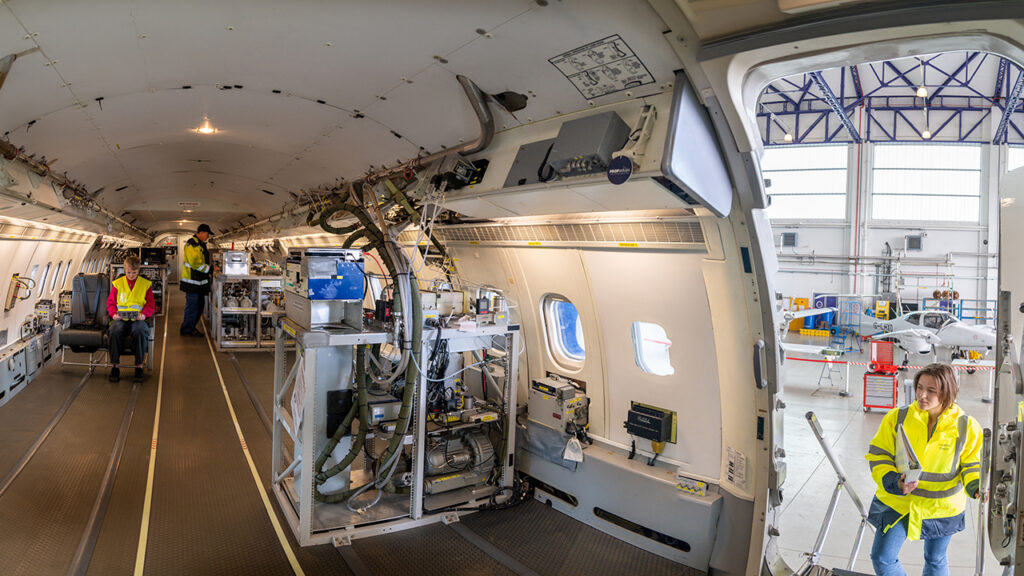
Job Opportunity: Instrument Integration and Development Engineer
Location: National Centre for Atmospheric Science HQ, based at University of Leeds (with scope for hybrid working)
Salary: £38,205 – £45,585 (per annum)
Contract length: Fixed term (until 31 March 2027)
Contract type: Full time
Closing date: Midnight on Wednesday 30 October 2024
Interview date: Monday 9 December 2024
Do you have experience working on complex engineering or instrument systems projects? Are you keen to develop your skills and experience in a collaborative and supportive environment? Would you like a once-in-a-lifetime opportunity to develop unique scientific systems for an internationally leading Airborne Laboratory? If so, we want to hear from you!
The FAAM Airborne Laboratory (FAAM) is a world-class research facility dedicated to the advancement of atmospheric science. FAAM operates a specially adapted BAe-146 4-engine research aircraft managed by a unique team of scientists, engineers, flight technicians and project managers, providing a complete package of support for the scientific community. The capabilities are extensively reliant on state-of-the-art scientific instrumentation, often uniquely customised for use on the aircraft, which is deployed throughout the world. FAAM is supported by the National Centre for Atmospheric Science (NCAS) and funded by the Natural Environment Research Council (NERC) and is an environmental research infrastructure of national and international importance.
The exciting FAAM Mid-Life Upgrade (MLU) project aims to deliver a range of upgrades and enhancements to the scientific capabilities of the aircraft, its measurement capabilities and its research impact, extending its useful life by at least 20 years. One significant upgrade to FAAM’s scientific capabilities will be the introduction of a scanning Doppler LiDAR, capable of providing real-time downward pointing profiles of the 3D wind field. The LiDAR is of bespoke design, developed by Fraunhofer UK.
As Instrument Integration and Development Engineer, you will work closely with the Fraunhofer team to learn in detail each part of the Doppler LiDAR subsystem. You will assist with the acceptance testing of each of the subsystems, and the integration of Fraunhofer systems onto the aircraft, working with the FAAM MLU design and engineering teams. The main focus of your work will be to develop the operational interface with the LiDAR that will allow the delivery of real-time quality-controlled final data products and user-configurable scanning patterns.
The aim is to produce a high-quality, reliable and innovative atmospheric science instrument that is ready for initial field deployment in spring 2026. This deployment will form part of the testing of the system and will take place in the Austrian Alps lasting approximately four weeks. There is also the possibility of further UK-based project support test flying in this period.
This is a unique and exciting role and will be ideal for a collaborative and innovative person who is able to work across disciplines and keen to make a valuable contribution to an internationally significant project. The successful candidate will join a team committed to providing a working environment that is collegiate and inclusive, one where all staff are supported and developed in all aspects of their work.
This role will be based primarily on the University of Leeds campus, with periods spent within the FAAM team on the campus at Cranfield University. There is scope for it to be undertaken in a hybrid manner. We are also open to discussing flexible working arrangements.
Apply Now
To explore the post further or for any queries you may have, please contact:
Dr Ryan Neely, Associate Professor: Observational Atmospheric Science
Email: ryan.neely@ncas.ac.uk
